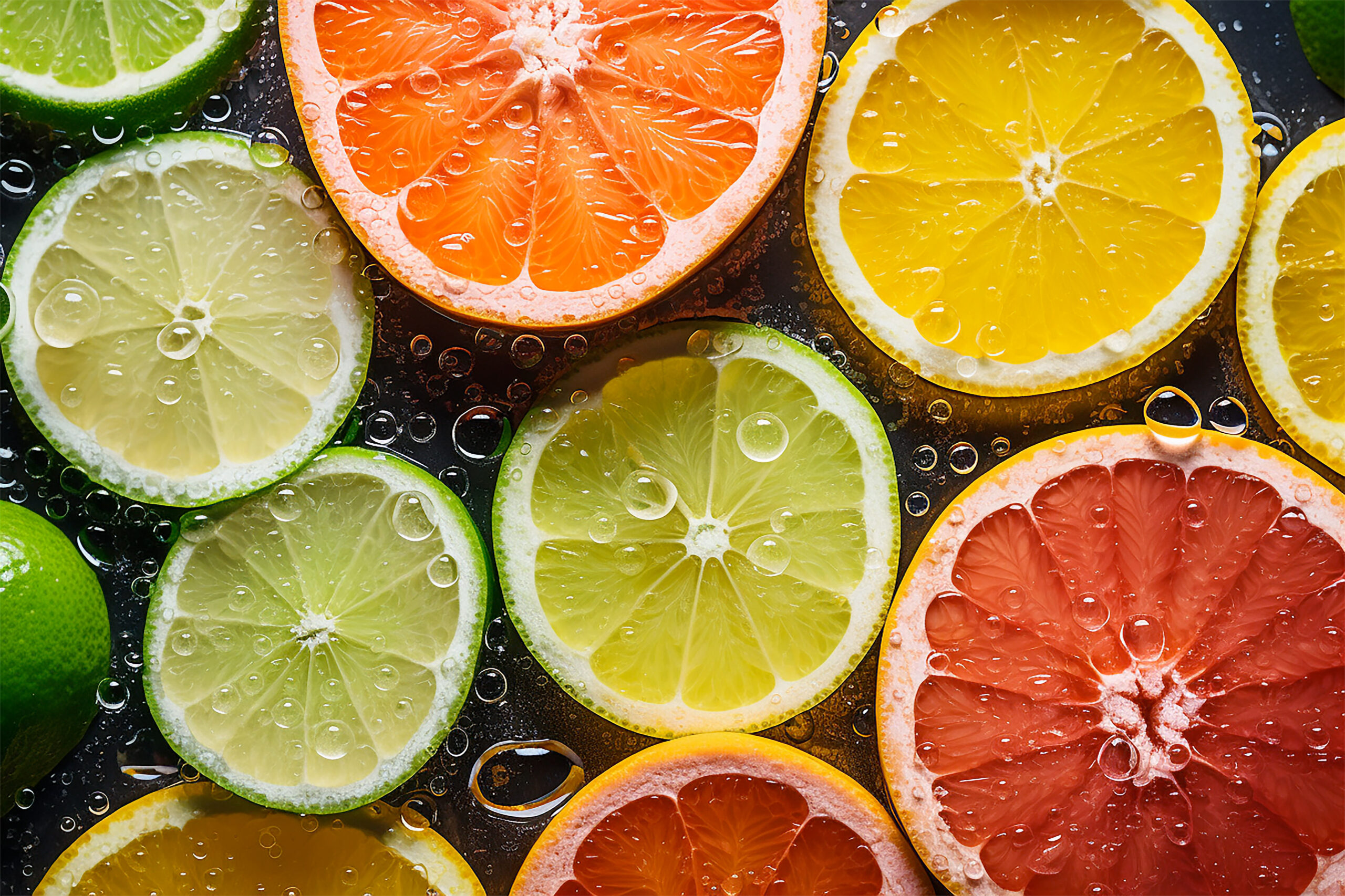Boost Crops with K Silicate Fertilizer
Are you aware that nearly a third of worldwide harvests can be boosted with improved nutrients like potassium silicate? This data point highlights the nutrient’s capability to change farming practices. As growers face the obstacles of environmental shifts and soil degradation, potassium silicate stands out as a state-of-the-art answer. It not only boosts harvests but also supports robust growth.
This write-up will explore the advantages of potassium silicate fertilizer, its roles in crop cultivation, and ways to maximize your farm’s output. With expertise from experts, you’ll discover why potassium silicate is essential for successful farming. It prepares the ground for effective farming practices, bringing about higher production and enhanced crop quality.
Key Points
- Potassium silicate fertilizer greatly enhances crop resilience.
- It improves light absorption, leading to vibrant crops.
- This nutrient reinforces cell walls, ensuring resilience.
- Optimal methods of use are critical for achieving success.
- Grasping dosage guidelines ensures effective fertilizer application.
- Silicate Potash is applicable in both soil and hydroponic systems.
- Utilizing K Silicate boosts production in growing cannabis.
What is K Silicate?
Potassium silicate is a dissolvable compound crucial for enhancing agricultural output. It blends K, important for plant health, with SiO2. This blend improves crop robustness and growth. The unique structure of silicate potash reinforces plant cells and enhances resilience against climatic challenges.
This fertilizer’s versatility makes it suitable for both conventional agriculture and soilless agriculture. Its dissolvable potassium provides superior absorption. This secures crops receive the necessary nutrients for best possible production.
Agriculturalists and gardeners commonly use silicate potash for its ability to strengthen plants. By incorporating this fertilizer, they boost the vitality and robustness of their crops. This brings about healthier plants and potentially increased production.
Benefits of K Silicate for Agricultural Yield
K Silicate is known for its extensive benefits in plant production. This additive is crucial for enhancing crop yield and vitality. Its distinct features offer notable benefits that are vital for plant development.
Enhances Plant Resilience
Potassium silicate significantly enhances agricultural durability. Silicon in this supplement fortifies plants against drought and diseases. It arms agriculture with a built-in protection, enabling them to endure external pressures more effectively.
Improves Light Absorption
The presence of potassium and silica boosts photosynthesis. It stimulates chloroplast activity, enabling vegetation to absorb solar energy more effectively. This leads to healthier leaves and higher production, directly contributing to plant growth and health.
Fortifies Cellular Structures
Silicate Potash reinforces plant cells in crops. These fortified plant cells help plants to withstand environmental stress and diseases more efficiently. This not only boosts plant resilience but also promotes their health throughout all stages of growth.
Roles of K Silicate in Agriculture
K Silicate is essential in crop production, serving as a cornerstone in boosting crop production. It serves as a growth enhancer, facilitating plant growth and improving nutrient absorption. Agriculturalists frequently incorporate silicate potash for different plants, like:
- Field crops including corn and soy
- Vine crops like grapes and cucumbers
- Decorative vegetation for garden beauty
- Water-based farming for soil-free agriculture
Incorporating K Silicate to farming routines enhances vegetation well-being. It boosts agricultural protection, leading to better production and superior produce. Moreover, it supports water retention and assisting plants in stress management, aiding their productivity throughout the year.
| Vegetation Type | Advantages of K Silicate | Usage Method |
|---|---|---|
| Large-Scale Plants | Enhances water retention | Soil application or foliar spray |
| Vine Crops | Enhances fruit robustness | Drip irrigation |
| Ornamentals | Boosts coloration and development | Direct leaf application |
| Soilless Farming | Supports nutrient stability | Integrated into nutrient mix |
The multiple roles of silicate potash in farming underscore its critical importance. It provides healthy crops and enhances crop yields.
Applying Silicate Potash
Effective implementation of K Silicate is essential for boosting plant health. Knowing how to apply potassium silicate can dramatically enhance agricultural success. Below, discover the multiple techniques for applying and recommended procedures for incorporating this vital nutrient into your crop management.
Best Ways to Apply
There are multiple options to apply silicate potash, giving you choices to meet various agricultural requirements. Here are some effective methods:
-
Foliar Spraying: This method includes blending potassium silicate with water and applying it on plant leaves. It ensures immediate absorption by the crop.
-
Soil Application: Adding silicate potash to the earth near root systems renders it easily absorbed for plant use.
-
Application in Water-Based Farming: For water-based cultivators, mix potassium silicate in nutrient solutions to ensure silica availability to vegetation in a precise application.
The solubility of potassium silicate aids efficient absorption by plants through these methods, ensuring your get the nutrients they require.
Optimal Usage Strategies
To fully utilize silicate potash, adhere to these effective strategies:
- Combine K Silicate with water as recommended by the manufacturer before application.
- Avoid mixing K Silicate with concentrated fertilizers in one solution. This may cause chemical reactions that lessen its effectiveness.
- Consistently monitor environmental conditions and crop vitality to determine the effectiveness of your fertilizer application.
By following these techniques and recommended strategies, you can greatly improve the effectiveness of K Silicate. This will aid grow more robust crops.
Silicate Potash Usage Levels
Understanding the optimal usage levels for potassium silicate is vital to guaranteeing maximal crop health. Applying the correct level is crucial to stop low dosage or over-application. Both situations may affect agricultural productivity and harvest adversely.
Knowing Usage Recommendations
Dosage amounts for K Silicate depend on multiple considerations, including the type of plant, its growth stage, and the soil’s condition. It’s vital to stick to dosage instructions from producers. These recommendations are designed for particular plants and situations. While a common dosage is often recommended, conducting soil tests can offer more precise advice.
Considerations for Usage Amounts
Several factors are important in setting the right K Silicate usage amounts:
-
Soil Composition: The soil’s consistency and composition influence nutrient availability.
-
Current Nutrient Concentration: Checking current potassium and silica levels is necessary before incorporating.
-
Plant Nutrient Needs: Every plant has specific nutrient demands that affect the right dosage.
| Plant Category | Maturation Level | Recommended Application Rate (lbs/acre) |
|---|---|---|
| Food Crops | Early Growth | Between 10-20 |
| Orchard Crops | Mid-Growth | 30-40 |
| Grain Plants | Final Development | Between 15-25 |
| Floral Crops | Blooming | A range of 5-10 |
Popular Silicate Potash Options
Selecting top silicate potash brands is vital for effective crop management. A range of producers sell distinct features and affordable rates, serving different crop requirements.
Leading Products to Explore
Well-known brands among the top potassium silicate brands include:
- AgSil Products
- AN (with products like Rhino Skin)
- VanBaerle Nutrients
These brands are renowned for their nutrients created to enhance agricultural success.
Key Details and Prices
Grasping the details and prices of potassium silicate products helps in making informed choices. For example:
| Brand | Specific Option | Product Strength | Silicon Dioxide Level | Pricing |
|---|---|---|---|---|
| AgSil Solutions | AgSil 16H Formula | 32% K | 52.8% | \$45.34 per 4 lbs |
| AN | Rhino Skin | 1% K | Silica Boosted | \$36.99 (1 L) |
| VanBaerle | Silicate 10 | 10% K | SiO2 Not Indicated | \$29.99 per 5 lbs |
This overview illustrates the diversity in characteristics and rates across leading brands. Thoughtful evaluation of these aspects guarantees the optimal application of silicate potash in agriculture.
Silicate Potash for Agricultural Well-being
K Silicate is vital for enhancing crop vitality, increasing vigor and resistance. It reinforces plant cells, bringing about stronger defenses and accelerated maturation. This compound SiO2 positive effects vegetation by making stems and leaves stiffer, vital to withstanding severe climates and disease risks.
Moreover, silicate potash boosts water retention and nutrient uptake in vegetation. Strong agriculture absorb minerals more successfully and withstand climatic challenges better. This flexibility helps sustainable agriculture, supporting green agriculture.
Grasping potassium silicate’s value encourages farmers and plant enthusiasts to integrate it in their cultivation plans. By doing so, they produce stronger plants that can prosper under varied circumstances.
| Element | Benefits of Silicate Potash |
|---|---|
| Plant Structure | Fortifies plant tissues, boosting agricultural strength |
| Health Defenses | Improved capacity to resist pathogens and threats |
| Development Speed | Promotes faster maturation and development of crops |
| Environmental Durability | Improves resistance to extreme weather |
| Mineral Absorption | Boosts mineral uptake of key compounds |
| Moisture Preservation | Improves soil moisture retention for stronger plants |
Silicate Potash for Water-Based Farming
In the field of water-based agriculture, regulating plant diet is vital for optimal plant growth. silicate potash is a important nutrient that boosts the efficacy of hydroponic systems. It’s highly advantageous during key development stages, leading to healthier vegetation and better production.
Applying K Silicate in Water-Based Cultivation
Introducing potassium silicate fertilizer into soilless setups at strategic times enhances its advantages. The bloom stage is crucial, as vegetation demand more vital elements. Using potassium silicate at this stage brings about several benefits:
-
Improved root development: A healthy root base assists with better nutrient absorption.
-
Enhanced nutrient interaction: silicate potash optimizes how plants use nutrients in hydroponic systems.
-
Increased resistance to environmental stress: Plants become stronger to temperature and humidity changes.
-
Boosted growth rates: Crops grow faster and more robust with the proper level of potassium silicate.
Adhering to these suggestions ensures optimal application of K Silicate in your water-based farm. The timing and quantity of this supplement significantly impact its efficacy.
| Maturation Level | Suggested Amount | Expected Benefits |
|---|---|---|
| Seedling | 0.5-1 ml/L | Healthy root development |
| Vegetative | A range of 1-2 ml/L | Better nutrient utilization |
| Flowering Stage | A range of 2-3 ml/L | Enhanced crop production and strength |
Silicate Potash for Cannabis Growth
The use of potassium silicate fertilizer has transformed cannabis growth. This nutrient offers specific benefits suited to marijuana crops. It enhances development, enhances crop resilience, and brings about increased harvests.
Maximizing Yields with K Silicate
Silicate Potash aids in increasing harvests by fostering a strong plant structure. Higher SiO2 bring about stronger plant bases, designed for supporting large flowers. Furthermore, it boosts resin output, important for the strength and grade of the produce. This leads to higher harvests and superior cannabis growth advantages desired by cultivators.
-
Strong crop foundation: More resilient branches hold up bigger buds.
-
Increased trichome production: Improved flower strength with greater strength.
-
Enhanced durability: Ability to withstand environmental challenges.
-
Improved plant vitality: More resilient vegetation lead to improved yields.
Integrating potassium silicate fertilizer provides a strategic edge for cannabis cultivators looking to improve their cultivation methods.
Potassium Silicate Fertilizer Suppliers
Cultivators seeking quality potassium silicate fertilizers have multiple sources to select. Nearby agriculture hubs are a regular supplier, making these fertilizers accessible to farmers in the area. For those opting for online shopping, numerous retailers sell silicate potash, focusing on home gardeners.
Leading names like Custom Hydro Nutrients, and Advanced Growth Solutions stand out. They provide a selection of options suited to both home growers and commercial farming. Their commitment to excellence guarantees optimal farming results.
In searching for K Silicate, think about both the price and the product’s features. Below is a overview of some suppliers:
| Vendor | Product Type | Price per Unit | Target Market |
|---|---|---|---|
| CHN | Dissolvable K Silicate | \$20 for 1 liter | Home and Commercial Growers |
| Advanced Nutrients | Potassium Silicate Powder | \$25 for 1 kg | Small-Scale Farmers |
| Regional Cooperative | Granulated Silicate Potash | \$15 per 2 kg | Commercial Farmers |
Being aware of the sources for K Silicate enables farmers in choosing the right options for their fertilizer needs. This results in enhanced farming success.
Silicate Potash for Better Blooms and Produce
silicate potash is a transformative fertilizer for flowering plants and fruit-bearing crops. It significantly enhances blossom dimensions, which doesn’t just improves aesthetics but also increases pollination success. This leads to a stronger plant maturation.
For fruiting crops, K Silicate is a powerhouse. It boosts produce size and quality, improving marketability. The product goes beyond growth; it also improves fruit texture and flavor, improving the overall customer satisfaction.
Additionally, K Silicate improves photosynthesis efficiency, leading to increased production. Silicic acid, a key component, increases durability. This helps flowering plants and fruiting crops to strongly endure external pressures, resulting in prolonged fruiting seasons and greater yields.
Incorporating potassium silicate into your fertilization strategy will greatly enhance blooming and production. It builds a more resilient plot or field, rendering it a best option for those pursuing maximum production.
Issues and Points to Keep in Mind with Silicate Potash
K Silicate is a strong nutrient for enhancing plant health. However, its effective use hinges on addressing certain challenges. Getting the proper amount is crucial. Excessive use might result in nutrient imbalances, hindering agricultural success.
Making sure it works well with other nutrients is equally crucial. Before mixing products, checking their ability to work together is important. Incompatible combinations might reduce the nutrient’s impact. Grasping these considerations is key to improving use techniques.
Increasing farmer understanding about these factors can significantly boost silicate potash use. By choosing wisely, farmers can cultivate stronger crops and elevate yields.
| Issue | Consideration | Guidelines for Proper Utilization |
|---|---|---|
| Over-Application | Growth Issues | Adhere to usage instructions; test nutrient levels. |
| Mixing Problems | Potential Adverse Reactions | Ensure safe combinations; talk to specialists. |
| Insufficient Information | Underutilization of Benefits | Participate in learning programs; research successful applications. |
Conclusion
The value of silicate potash in agriculture is vast. It delivers substantial benefits for plant growth. This supplement enhances agricultural strength and overall health, resulting in thriving plants across varied circumstances.
Additionally, silicate potash assists in optimal farming practices. It supplies vital nutrients that protect plants from water scarcity and pests. Proper use of this product enables growers to boost yields, resulting in abundant harvests.
In the future of eco-friendly farming, potassium silicate appears to be a vital product for cultivating strong plants. By adding this fertilizer, growers can grow stronger vegetation. This method aids both environmental sustainability and financial success in agricultural enterprises.


